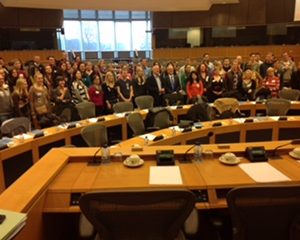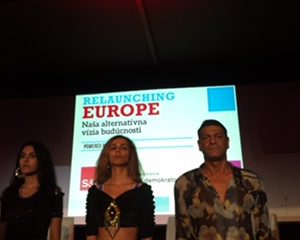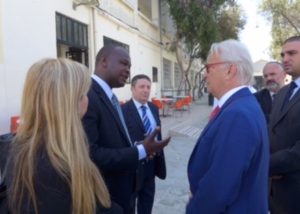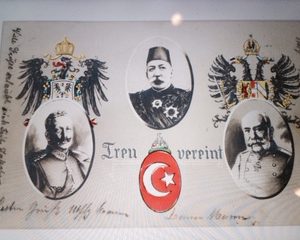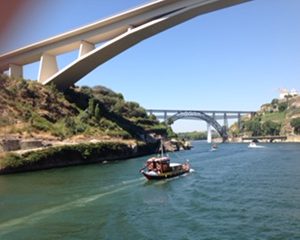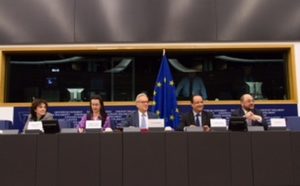EU from a Project of the Elite to a Citizen’s Project – The European Dream is still unfinished
The start of EU as an elite project
Fortunately responsible leaders after WW II decided to start a process of unification. Old animosities and cleavages were pushed aside and new common (!) institutions have been created. It is doubtful if the citizens of countries who fought against each other and who have been educated with prejudices and hate against each other would have been ready to vote for a common Europe in a referendum. Would the French and the Dutch have voted to forget the violence of the German occupation? How difficult it is to bring the People behind peace agreements after many atrocities have been committed was recently shown by the vote in Columbia on the peace agreement with FARC.
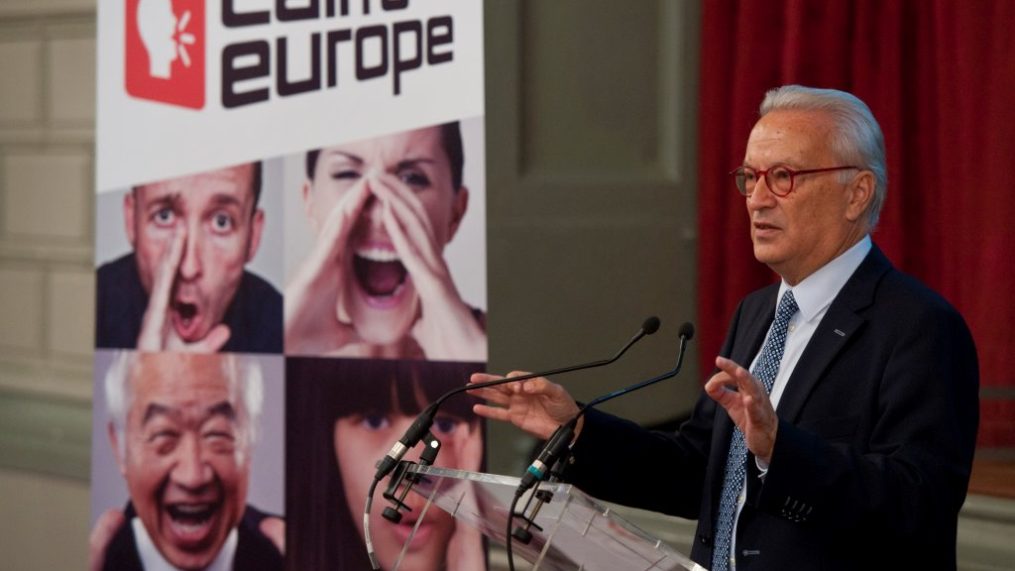
And for many years there was no reason to doubt that the public would be in agreement with the European project as the voters for the different pro-European parties supported the leaders policies of strengthening the new European Community. But for many Europeans the European Union stayed a project of experts and functionaries dealing and wheeling far away in Brussels.
The unification process was not going always easily and without obstacles. National interests came again and again onto the table of negotiations. And as with all institutions, the European bureaucracy was growing and managed to increase its influence. It had the argument of „neutrality“ on its side and the Common Market became the core of the European Union. That does not mean, that always the business interests prevailed. Important social, health and environmental legislations were decided against the business lobbies. But the fact that the driving forces behind the Common Market seemed to outweigh political arguments of national politicians, enhanced the feeling of many citizens, especially in the richer EU countries, that in the EU only the economy counts. And very often the majorities in the Council (the European governments) and the European Parliament supported the „neo-liberal“ line of the Commission.
For many in the western, economically advanced EU countries the opening of the labour markets after enlargement was seen as an additional advantage for business and not as a support for jobseekers of the poorer and lower income countries. What was a social gain for the ones had been seen as a unfair competition and disadvantage for the others. Enlargement instead of supporting the unification process overwhelmingly sometimes increased cleavages – at least in the short run.
Break up of the consensus
The four freedoms of movement for capital, goods, services and persons (labour) were interpreted by the promoters of the European project as beneficial for all and as reducing the income gap inside the EU and bringing forward the equalization of incomes and living standards across the continent. But this process was in reality much slower and cruelly interrupted by the financial crisis and the austerity policies inside the EU. This supported an unacceptable high rate of unemployment and poverty. At the same time social expenditures were cut. Consequently the income inequalities were rising in many countries.
Together with globalization and technological progress as main economic driving forces the financial crisis and the lack of public and private investment to counter these developments created a rising opposition against EU policies and the EU as such. In some countries the debate about new trade agreements like CETA with Canada and TTIP with the US was an expression of that sentiments. These agreements, especially that foreseen with the US were seen more as an additional threat than as an opportunity to create new jobs.
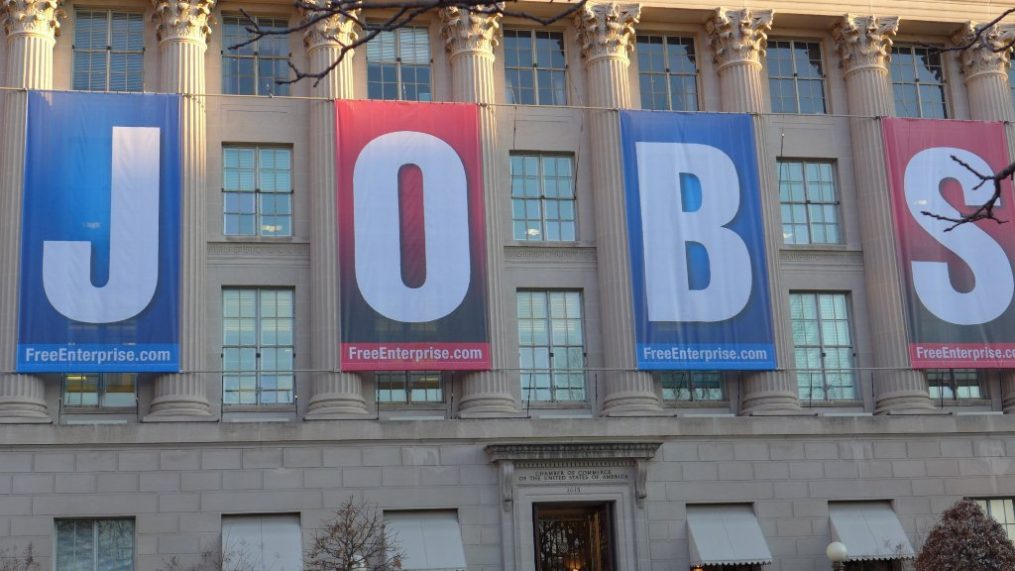
At the same time these economic and social developments had also political implications. Interestingly the disregard of the social grievances by traditional politics did not promote social unrest and revolutions. The right wing has quickly taken the opportunity to underline the national and ethnic issues and created its hegemony of the public debates. Foreign labour – from the EU and outside the EU – and migration in general were made responsible for unemployment and low wage increases. In addition European integration and especially the Euro were also seen as detrimental to economic and social welfare.
The strong influx of refugees especially in 2015 was increasing the fears of many citizens. They feared and fear a new and enhanced competition by the newcomers and they fear that the national or European – christian – culture could be oppressed by new religions, especially by Islam. As usual people in times of crisis tend to reject openness and want to have protection from outside influences and competition. And the right wing forces offered understanding, support and help – verbally at least.
One can only hope with Michael Landesmann from the Vienna Institute for International Economic Studies for a new strategy when he states; “ Even to the most committed adherents of a ’stabilization policy‘ it has now dawned that there is a strong political fall-out from ignoring the social structural and income distribution effects of the economic strategy pursued over the past decades and particularly in response to the financial and economic crisis.“
But for the moment, Europe and its main political forces and personalities have not found an answer, neither to the new nationalistic tendencies nor to the economic and social root causes of the nationalistic turn. Even after the Brexit decision, which came for many surprisingly, we heard many politicians expressing their deception but not giving any convincing answers.
Growing divisions
The real challenge is how to bring the EU to the citizens. But who are the European citizens? It has been again and again underlined, that there is no European society and public and therefore the EU is an artificial construct. But more and more also national societies show strong divisions and antagonisms. The refugee crisis produced strong „moral“ divisions, but also the Brexit decision, where the vote was different for England and Wales on one side and Scotland and Northern Ireland on the other side. Anyway the results of these votes and referenda are generally quite close. You could see that also with the last round of Austria’s presidential election, which was challenged because it was so close.
Overall the anti-European sentiment was closely linked to those who felt, they were on the losing side of European policies and globalization. What was also remarkable, was the fact, that in places where people where used to live and work with many migrants, like in urban agglomerations, you had more support for openness and European engagement than in rural and old industrial areas. Even if these developments are not unique to Europe – if you analyze the cleavages in the US and the narrow vote in Columbia on the peace agree to with FARC – the EU must find policies for a much more split and divided European society with often antagonistic views.
In addition to the national issues you have also regional issues like those promoted by the Scottish and Catalan independence movements. The Brexit decision has shown this different approaches, even if it is now overshadowed by the general Brexit discussion. This is also true for the chaotic political situation in Spain in respect to the Catalan question. The EU cannot avoid to be concerned about these open issues and must find some political approaches.
Besides these regional questions the EU has not any specific policies for the cities and their surroundings although the vast majority of citizens live in urban agglomerations. Coming closer to the citizens, the EU must develop policies to address specific policies to cities from integration of migrants to promoting smart cities with a comprehensive approach from the digital to the social agenda. A small step forward has been the development and decision of an „Urban Agenda for the EU“ the so called Pact of Amsterdam of May 2016, which should reorient policies of the EU to the needs of the urban population.
Change is necessary
Europe and its institutions cannot abstain itself from finding policies for dealing with these developments and challenges. Of course due to the different issues and opinions of its citizens there is not one and single strategy to be developed. A broad and intensive dialogue with the citizens would be the first step. It must be lead by Commissioners, Members of the European Parliament but also national, regional and local politicians. It is not about teaching citizens about the benefits of the EU or about voting in referenda but about listening to grievances and proposals to develop a reform program from bottom up.
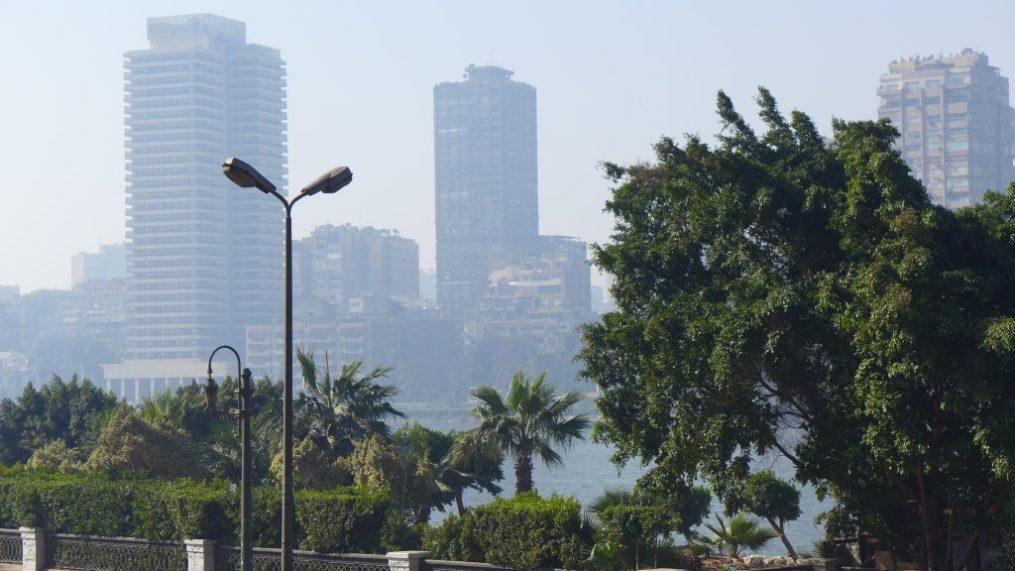
As with all organizations they can only survive with and due to change and adaptation to a new and challenging environment. And that must include a higher degree of flexibility. Here we can learn from the history of many bigger and especially multinational companies. But we have also to learn from the break up of multinational political unions and empires like the Austrian-Hungarian empire and the Soviet Union. The downfall of both cannot directly be compared to the present crisis of the EU. This is especially true for the dissolution of the Soviet Union. Brussels is not Moscow, as some demagogues say. But both former political unions were suffering inter alia from rigidity in dealing with the challenges from within and outside.
More democracy
Change also calls for rethinking the democratic dimension of the EU. Also in this respect the links to the citizens have to be strengthened. One possibility would be the direct election of the President of the EU Commission together with the election to the EU Parliament. The President of the Commission would be also the President of the Council. The EU needs only one president besides the Chair of the EU Parliament. That element of direct democracy would also reduce the power of some national leaders as constructive and helpful they may be for the moment.
Such steps of democratization would give the citizens the possibility to influence EU policies in several ways: with the election of EU parliamentarians and the EU President in addition to the national elections. And it would no longer be as one Spanish intellectual expressed it to me: people may vote for Rajoj, but who has no power in the EU and they cannot vote for Merkel (or her competitor), who has the real power in the EU.
Less bureaucracy, less regulations and more flexibility
Already now, we know, that many citizens complain about many rules and regulations which annoy many of them. These regulations always have some beneficiaries but often many more citizens who complain about bureaucratic interference from Brussels. The EU should agree on a moratorium of such regulations or on a much more considerate policy concerning its interventions. In general the EU should rather work with incentives and less with detailed regulations, which very often cannot be supervised and/or enforced. Sometimes less – on regulations- is more – on effectiveness. And it would be very helpful if the EU institutions would scrutinize the implementation of the existing rules and regulations and look for alternative and more effective ways of implementing the common aims and targets.
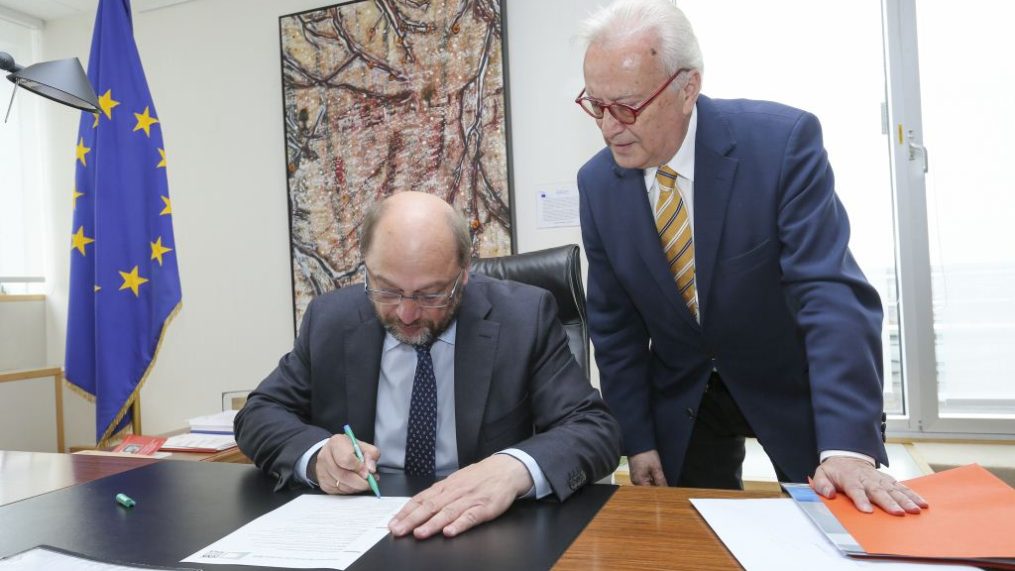
Certainly, Europe should continue to lead the necessary global environmental changes. Only with that lead the EU can push other countries to make the necessary steps towards more sustainable development. But also in this respect we need more incentives and flexibility how the member-states are fulfilling their obligations and less strict rules and detailed regulations.
The EU must be much more flexible in its policies. Let’s take the example of the free movement of labour. The free movement of labour has brought many benefits. But the situation changed. First the lifting of the economic and especially of the wage level was not as quick and strong as foreseen. Secondly the refugee influx into some countries was also not expected. A safeguard clause would have been helpful and still would be in case of increased unemployment in some countries or regions with high influx of foreign EU labour or refugees.
The refugee issue as such is also an example of a too bureaucratic approach. It could have been foreseen that a obligatory, forced system of distribution of refugees to different member countries is neither acceptable for some countries nor helpful for many refugees. The establishment of a refugee fund with contributions from all (!) countries according to their population and economic strength would have been much more helpful for those countries who would take refugees and would benefit from this fund.
More security
Security is one issue which must be on the top of the list of EU concerns. To build a Schengen zone as a common zone without internal borders but without a common supervision and control of the EU’s external borders must fail. Security issues must also be at the heart of the EU’s foreign and development policies. Conflict prevention and containment is important to reduce the „production“ of refugees, which could increase insecurity and especially fears inside the EU. Also a stronger military cooperation inside the EU may help to reduce the feeling of insecurity. But the EU should avoid attempts to „solve“ conflicts in our neighborhood by military force, which may create the contrary: more insecurity and chaos.
It is true as recently argued by Walter Russel Mead in an article under the title „Europe Needs Its Realist Past“, that the EU has to often neglected the existence of „Realpolitik“ which still is still dominant in our world. But to conclude that: „In the first place, Europe must recover its traditional appreciation of hard power“ has to be met with caution. On the other hand it is correct, to demand that „the bureaucratic – legalistic mind – set that now reigns in Brüssel will have to be modified.“ But that modification should never change or substitute the EU as a peace project.
A strong Euro
The second field where the EU must strengthen its institutional and political framework is the Euro. The fragile situation of the common currency, of some crisis countries and of some important banks call for clear decisions. The common currency demands common policies including a viable banking union with a deposit guarantee scheme, sufficient to meet all the risks which could be envisaged. As with Schengen going it half way is not enough. We need a comprehensive policy which is minimizing the risks for the survival – of the Euro as of the Schengenzone.
Important for a success of the Eurozone are also institutional and political reforms in some of the weaker economies of that area. They need less bureaucracy and more incentives for investment and risk taking. It is primarily the institutional setup in Greece and Italy’s south which are blocking an economic upturn. And the orthodox concentration of the EU policy on cuts and on tax increases is going in the wrong direction. Savings, especially in the public sector, are necessary, but it must be done in a measured way and overtaxing must be avoided, as it is supporting the black economy and preventing the financing of new productive investments.
A new look at trade and globalization
After the breakdown of multilateral trade rounds, it was natural to go into bilateral rounds. But many national and EU politicians have overlooked the changed attitude to globalization and especially free trade. Both have many advantages but also create losers alongside winners. Several studies show, that especially the integration of the Chinese economy into the world trade system helped China to reduce poverty and create a rising middle class, but had some negative effects for the exposed industries in the Western countries. But the losers were not taken care of and supported by effective measures. The small globalization fund of the EU was even reduced by the national governments at the last budget negotiations.
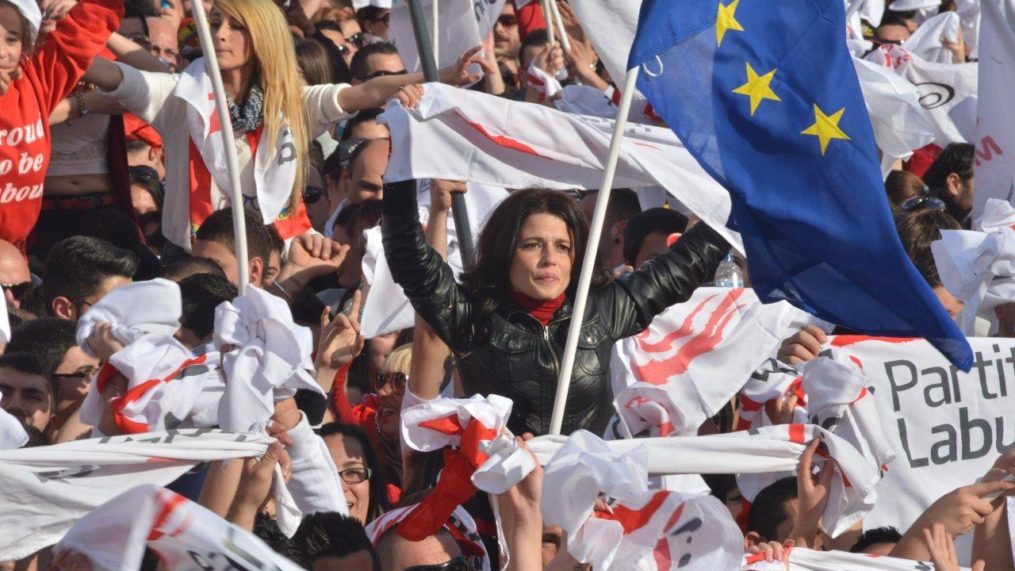
It would be not helpful to close our countries for international trade. Probably the poorer part of the society would suffer most, as they buy proportionally more imported – cheap – goods. But to study and consider carefully the effects of trade and the possibilities of compensations to the losers of trade and trade agreements would be very wise and should be an important issue for the EU.
Already the negotiations with Canada should have been handled with much more care. With TTIP one should decide on a new start with more respect for the concerns of the citizens. In addition one should make it clear to the US, that the EU cannot tolerate unilateral legislation and decisions like sanctions which would bind and restrict EU companies. The EU must lead these negotiations with stronger convictions and self consciousness to counter the sometimes arrogant behavior of the US authorities.
Brexit as a chance
Certainly Brexit should be taken as a chance for reforming the EU and make it more resilient to shocks like Brexit and to criticism from inside. In a paper by the famous Wharton school of the University of Pennsylvania there are clear advices like „Use the firepower of the world’s second largest economy and third largest talent pool with 444 million highly skilled and educated citizens“, or „Boost the single market – but shift the focus to direct benefits for people“ and the paper promotes a „smart integration“.
I can agree with these demands. Yes, the reforms of the EU should not destroy or undermine the Common Market. But we have to have a political debate what kind of special sensitivities should be respected and not be overtaken by the market principle. The preservation of public services is one example of that exception, where national or regional decisions should be more important and have more respect than the market forces. But the example of the Commission decision against Apple misusing national tax exemption rules made it clear: competition policy must be an important part of the EU Internal Market. But we have to design it with respect for those national sensitivities which are not violating the interests of other member countries.
Cohesion by flexible solutions
The cohesion and security of the EU is also endangered by unsolved national conflicts inside some important countries. Of course any interference from the outside is easily seen as dangerous and unwelcome, especially by national governments. But as the EU cannot be neutral on minority issues it must at least put pressure on some governments to start a serious dialogue with regional/national groups which are highly unsatisfied with their position within their countries. It is not up to EU institutions to support or reject independence movements. And the EU cannot initiate referenda, which may be helpful for coming to solutions. Although as was seen with the referendum in Scotland, referenda are not settling the issues once and for all. Those who lose in such referenda will ask for compensating policies in their interest and it can never be a „winner takes it all“ policy.
But as the EU has supported the peace process in Northern Ireland it should be helpful to find solutions concerning conflicts inside some member countries. It must enhance national dialogues to find a peaceful solution as it must support talks in Cyprus to find an agreed way of unification. If unification does not seem possible a special but respectful status for the Turkish community should be found, especially as the Turkish Cypriots voted for the „Annan‘ plan, proposed by the UN and for entering the EU. And concerning the Brexit the EU should also give those regions a special support, who voted for remaining inside the EU. Also in that respect a flexible solution should be found.
In general we have to say good by to uniform solutions. This may complicate the policies and the institutional frameworks. But different countries are in and (!) out at the same time and in different ways. Sovereignty and power is shared in different ways. Switzerland, Norway, Greenland etc. are examples for that special relations with the EU. But also the different customs unions and association agreements are different paths to „join“ the European projects. And solutions with the United Kingdom may deliver some elements of how the future relations between the EU on the one side and Turkey and the Ukraine on the other side could be developed. It is important to find solutions of mutual benefits and not to adhere to fixed guidelines and institutional arrangements.
In this respect I can only agree with Sinan Ülgen in an article under the title „New Models of Economic Integration for Turkey and the UK“: „Differentiated models of economic integration can provide an opening for tying in countries to the EU’s core of internal market rules. However, the feasibility of these models will depend on the willingness of EU policy makers to think constructively about alternative models of governance for internal market access to non-EU member countries. So far, this has proved to be a losing proposition, but the combined economic weight of the UK and Turkey could possibly just prove sufficient to sway the balance.“
Let’s start an open dialogue.
Europe is in a crisis, there can be no doubt about it. But until now the right wing and those who want to destroy Europe as it has been developed dominate the public debate. They even have concluded alliances with forces outside the EU like the Russian president who has no reason to support a strong European Union. Those who are interested in keeping the EU alive and strong are too much clinched to its present policies and institutional set up. It is time they are starting to think in alternative terms.

